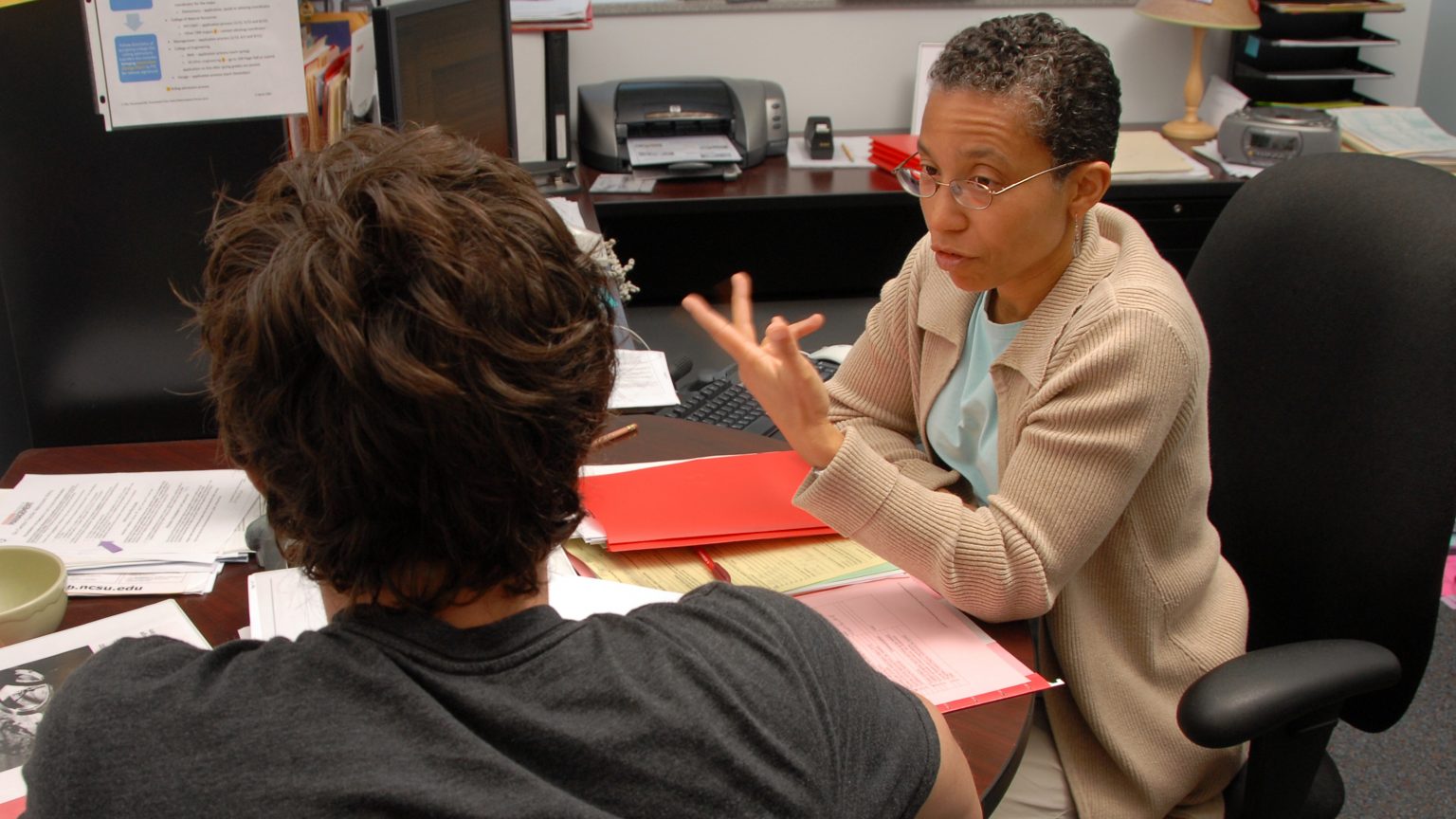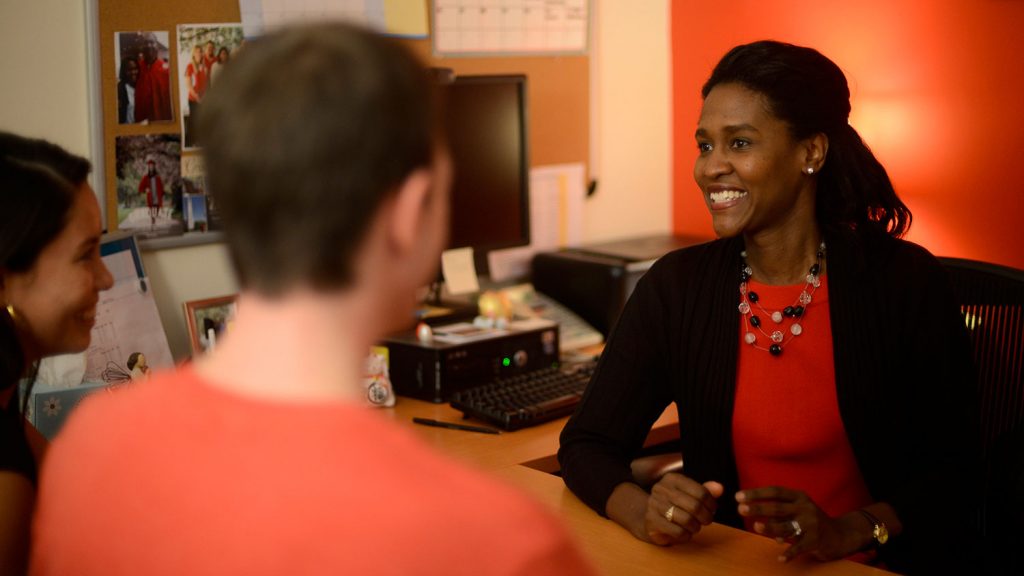Counselor Education Program
The NC State University Counselor Education Program is a multicultural and diverse learning community. Our program integrates and operates from our values of multiculturalism, advocacy, collaboration, leadership, technology and community engagement in our teaching, research, scholarship and service. We have a long, rich history as leaders in counseling and counselor education, responsive to the counseling needs of North Carolina, the United States and the world.
Established in 1946, with a foundation rooted in developmental theory, school counseling and career development, our program has evolved and emerged as an innovator of multicultural counseling. A prominent example of our innovation is the Community Counseling, Education, and Research Center (CCERC) of the NC State Counselor Education Program, with the vision of a national model for world class, multicultural counseling, supervision, education, training, research and advocacy.
We offer the following programs:
Master’s Programs (offered online and on-campus)
Doctoral Programs
Mission and Values
Our mission and values are demonstrated in every area of our counselor education program:
- We develop multicultural counseling competent counselors, counselor educators and clinical supervisors.
- We collaborate with school, college and community partners to support the holistic wellness of children, adolescents, adults, students and families.
- We advocate for healthier, safer, and engaged communities committed to well-being, connection, and belonging.
- We value our faculty and students and the diverse backgrounds they bring to our counseling community with respect to racial, ethnic, national, gender, generational, age and sexual identities, and the intersection of these identities. Further, we engage in inclusive teaching, research and service opportunities that seek to serve the interests of all within our state, national and global communities. We seek to build community and facilitate collegial collaboration between students and faculty.
- We recruit master’s and doctoral students who share our mission and values and whose experiences and expertise allow for meaningful contributions to enhance our community, our services and our program, as well as the greater good.
- We enhance the experiences of students, strengthen relationships between faculty and students, improve our program and impact local and professional communities through our active student organizations: Nu Sigma Chi chapter of Chi Sigma Iota Counseling, Academic, and Professional Honor Society International, and Doctoral Student Advisory Board.
- We follow a multicultural, strengths-based, wellness-focused, developmental, trauma-informed, prevention and early intervention framework to create an optimal learning environment for all students.
- We utilize an ongoing, comprehensive and systematic assessment plan to ensure multiculturalism and transparency, as well as to continually improve our program and address areas for growth. Our assessment plan follows the Council for the Accreditation of Counseling and Related Educational Programs (CACREP) program evaluation standards.
- We prepare students across specializations for their professional careers.
MASTER OF EDUCATION

The Program offers the three master’s degrees in college, clinical mental health, and school counseling are offered as on-campus and online deliveries. Students may choose one of these two delivery options. Both the on-campus and online platforms require the completion of identical 60 credits curricular requirements.
If you want a flexible learning experience, the online delivery may be right for you. Our innovative online delivery requires the students to study from Moodle, an online learning platform as well as to meet weekly in a live web conference session for a variety of learning activities including counseling practice, role-plays, and presentations. If accepted into the online counseling graduate program, you must complete the program, including a practicum and internship in North Carolina. You must be physically present in North Carolina for the period of the program, including a practicum and internship. Additionally, license requirements are different in each state and therefore we can only admit students who intend to work in North Carolina.
DOCTORAL
Graduate Certificate
Faculty
- Alex Becnel, Assistant Professor, Counselor Education, ELPHD Department
- Rawn Boulden, Assistant Professor, Counselor Education, ELPHD Department
- Cristina Braga, Assistant Teaching Professor, Online Clinical Mental Health Counseling Coordinator, Counselor Education, ELPHD Department
- Nicole Childs, Assistant Teaching Professor, GCCE Coordinator, Counselor Education, ELPHD Department
- Briana Gaines, Assistant Teaching Professor, Counselor Education, ELPHD Department
- Marc Grimmett, Professor, Program Coordinator, Counselor Education, ELPHD Department
- Rolanda Mitchell, Assistant Professor, Online School Counseling Coordinator, Counselor Education, ELPHD Department
- Sylvia Nassar, Professor, Counselor Education, ELPHD Department
- Brean’a Parker, Assistant Professor, On-Campus Clinical Mental Health Counseling Coordinator, Counselor Education, ELPHD Department
- Jose Picart, Senior Faculty Fellow, Friday Institute for Educational Innovation, Professor of Counselor Education, ELPHD Department and Executive Director, Wake Partnership for Postsecondary Success
- Angela Smith, Teaching Professor, Online College Counseling and Student Development Coordinator, Counselor Education, ELPHD Department
- Terri Tilford, Assistant Teaching Professor, Clinical Coordinator, Counselor Education, ELPHD Department
- Siu-Man Raymond Ting, Professor, and Director of Graduate Programs, On-Campus College Counseling and Student Development Coordinator, ELPHD Department




